Western media outlets are deliberately peddling vague information to exploit people’s equally vague knowledge of geography. You can read the article here. Let’s debunk the fake news lies one at a time. Anglo news outlets generally repeat these lies verbatim (because they rely on the same sources, I’ll get to that).
Claim 1: Russia is massing troops in Smolensk.
BBC, Reuters, Al Jazeera English, CNN, and the other usual suspects will typically run the same open-source satellite images of some tents and trucks in Smolensk, claiming that this is “near” the Ukrainian border. Here’s the graphic BBC presented:
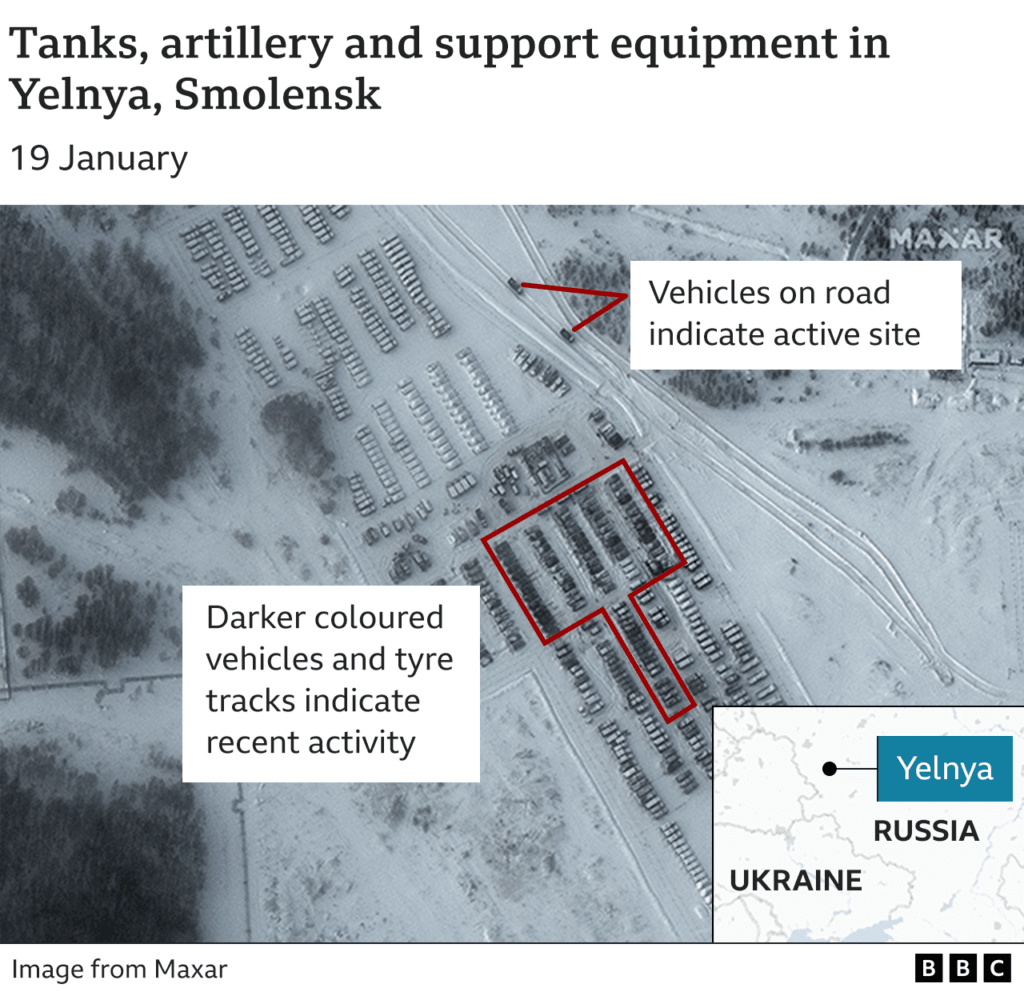
Notice the vague minimap tucked into the corner. Here’s a better one from Yandex maps. The Smolensk Oblast doesn’t even share a border with Ukraine.
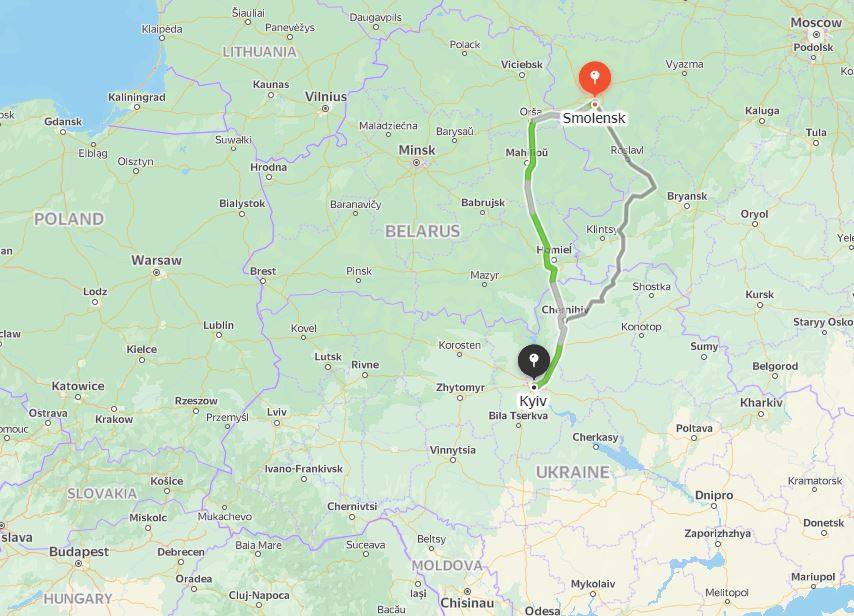
Also here’s some context about Smolensk, which pro-war media outlets never give us. Smolensk was the route taken by Charles XII, Napoleon, and Hitler in their respective invasions of Russia. It’s a logical place for a hostile army to invade, and an equally sensible place to hold defense drills.
Claim 2: Russia is wargaming an invasion of Ukraine from Belarus
This one is more complicated, so let’s take it piecemeal. BBC starts off with a shared tweet:
Where is Rechitsa? From Yandex maps:
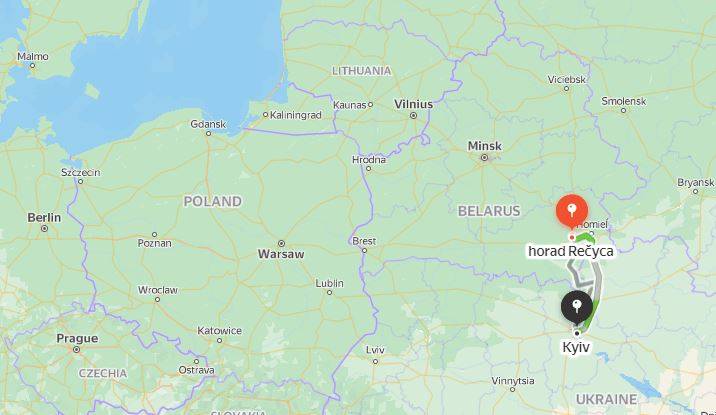
The road pictured is Expressway M-10, which runs East-West in Belarus from Rechitsa to near the Polish border.
Speaking of the Polish border, that’s what the exercise is about. “Allied Resolve 2022” (Союзная решимость) simulates a hypothetical defensive action in Belarus. Of course all military training exercises are defensive, and all military blocs are defensive too. Just like NATO is a “defensive alliance.” Anyway, according to the Belarusan news site The Village, Allied Resolve involves a hypothetical enemy, “Западные” (the West), comprised of invading troops from four countries. The article also includes a photo of a map allegedly of the exercise, which I’ve included below:
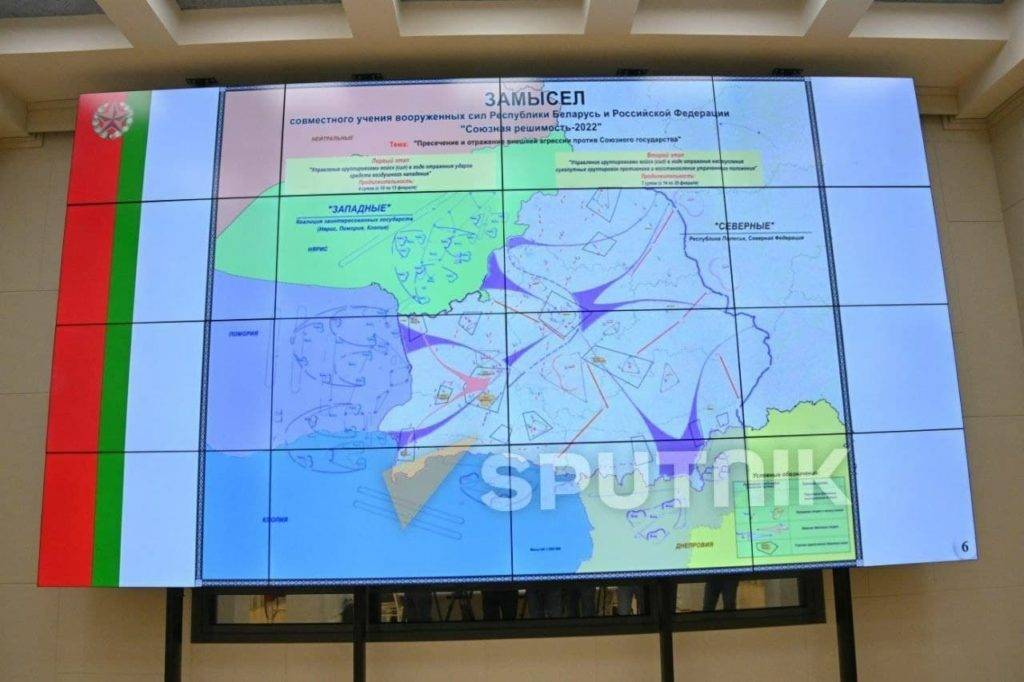
This is a low-resolution image, but it is still possible to read. Notice “Западные” (the West) in the green portion. Here are the imaginary countries listed:
The green portion is labeled Нярис – Nyaris, the name of a river running through Lithuania and Belarus. The green country looks like a mashup of Lithuania and Latvia.
In purple we see Помория – Pomoria, or “land by the sea.” According to the article, this is a historic portion of Poland and also matches with Poland on the map.
As for the blue country, that’s Клопия, literally “Bedbugland.” The map in the photo doesn’t quite match up with modern borders. According to the article, this is the pre-1939 border. After World War II, Stalin gave Poland a considerable amount of territory at the Belarusans’ expense. So, yes, Bedbugland is a mean joke about Poland.
The yellow country is Днепровия, Dnieprovia, named after the river Dnieper, so… Ukraine.
The country being defended is “Полесье,” Polesie, a large region in Belarus (so is a stand-in for Belarus).
As funny as the names are, the stated scenario behind the exercise is interesting:
The main reason for the aggravation of the situation is the desire of the “West” to destabilize the situation in the Republic of Polesie, change its political leadership, to achieve the liquidation of the Union State in the interests of further weakening the Northern Federation. After the “West” failed to initiate an internal conflict, they began to implement the most radical measures: “using controlled terrorist organizations and the opposition, provoked armed conflict with the neighboring Republic of the Dnieper.” Then, under the pretext of conducting a peacekeeping operation, the “West” enters its troops into the territory of the Republic of Polesie and establishes control over a number of its western regions.
Of course this is a reference to real events – the failed color revolution in Belarus, the successful color revolution in Ukraine, and the escalating NATO buildup and provocations on the borders of Belarus. See my two previous stories here and here.
So, to use Antony Blinken’s favorite line, Russia remains committed to the territorial integrity and sovereignty of Belarus. Right? But that doesn’t suit the narrative, so BBC twists an obvious fact, strips it of context, and makes it about Ukraine, when it had little or nothing to do with Ukraine.
I also want to draw attention to the sources BBC is using. Michael J. Sheldon lists himself as a research associate at the Atlantic Council, the largest and most powerful NGO behind NATO. Some source, eh? But BBC’s main source, the Conflict Intelligence Team, is even more interesting. The CIT is owned by a certain Ruslan Leviev, a blogger living in Moscow. Then I noticed that this wasn’t a one-time thing. Leviev is quoted by Western news sources a lot. He’s quoted in articles about the Russian “buildup” around Ukraine, the Wagner Group in Syria, and Russian separatists in Donbass.
Leviev deserves his own post so I won’t go into too much detail here, but here’s the scoop in a nutshell. I don’t think he’s some sort of CIA agent. I don’t even think he’s a bad person. He’s a Russian blogger who doesn’t like the Russian government. But I do think it’s a little ridiculous that in the so-called information era, our information stream in many topics and industries bottlenecks down to a handful of individuals. The situations in Ukraine (and Belarus) are complicated and need context. We get context by sending reporters with cameras to Donbass, Kiyv, Moscow, Minsk, and everywhere in between. Isn’t that what journalism is supposed to be about? Our news articles are written by people who spend all day on Twitter quoting other people who are also on Twitter. Maybe we can do better?
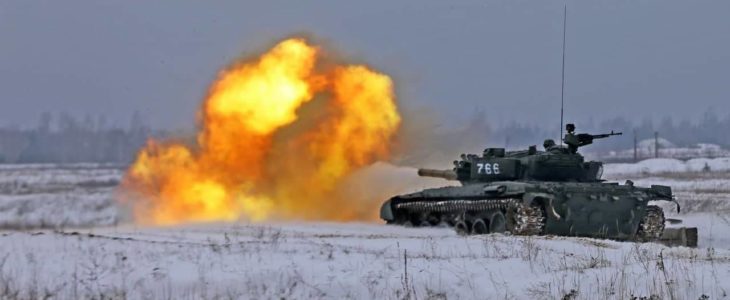
Featured Image Source: Belarus Ministry of Defense
Ian Kummer

All text in Reading Junkie posts are free to share or republish without permission, and I highly encourage my fellow bloggers to do so. Please be courteous and link back to the original.
I now have a new YouTube channel that I will use to upload videos from my travels around Russia. Expect new content there soon. Please give me a follow here.
Also feel free to connect with me on Quora (I sometimes share unique articles there).

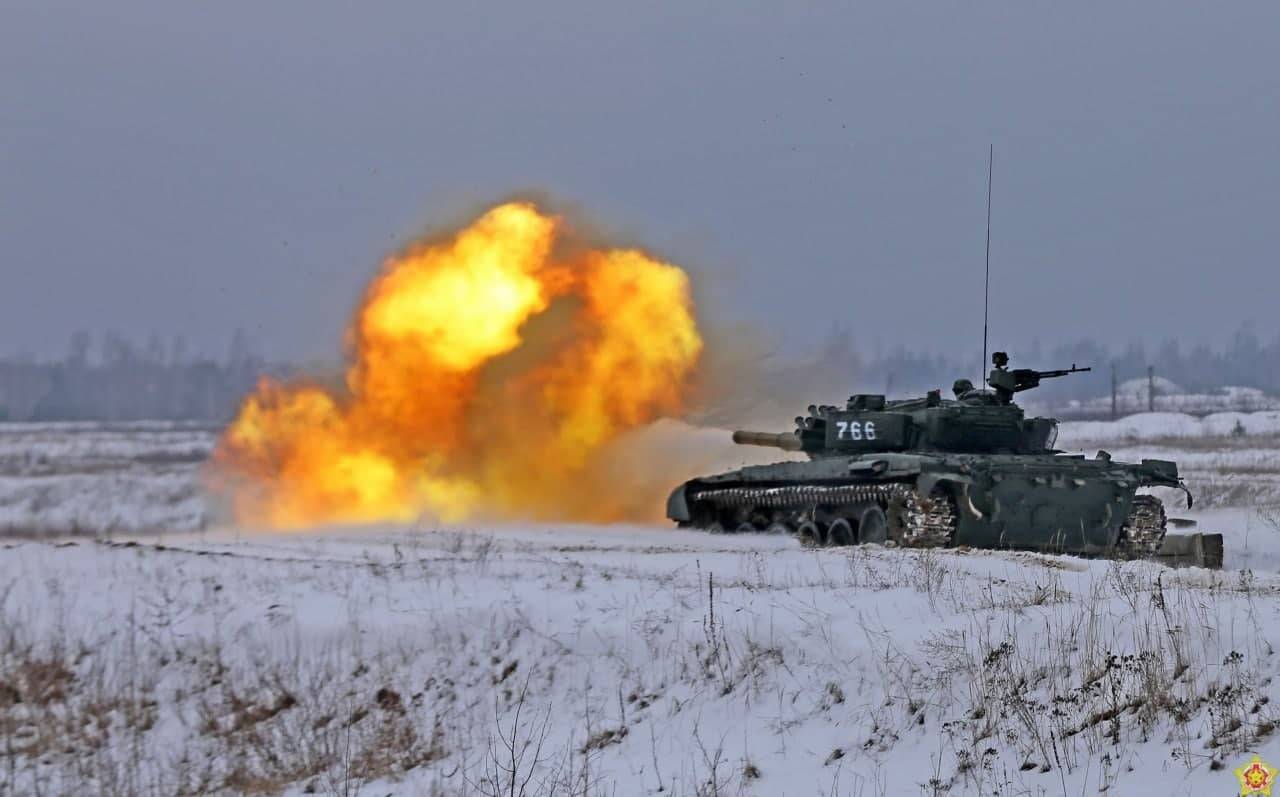

啥也不说了,希望疫情早点结束吧!
You choose peace or war?
How is the COVID situation over there?
All covid restrictions have been lifted. Even when I was in Moscow back in Dec-Jan, there was very little buzz about covid. Nobody really cared about it anymore, for the most part.